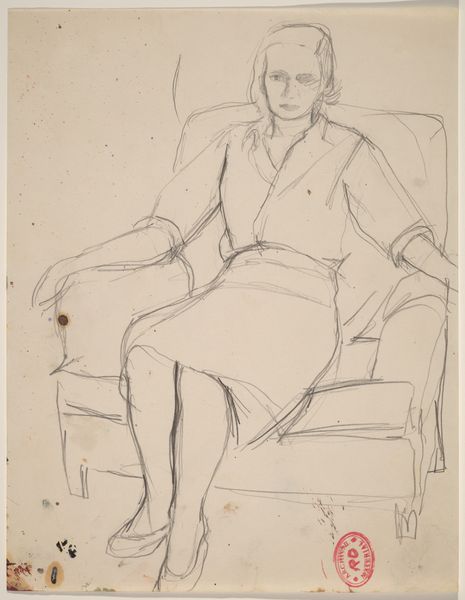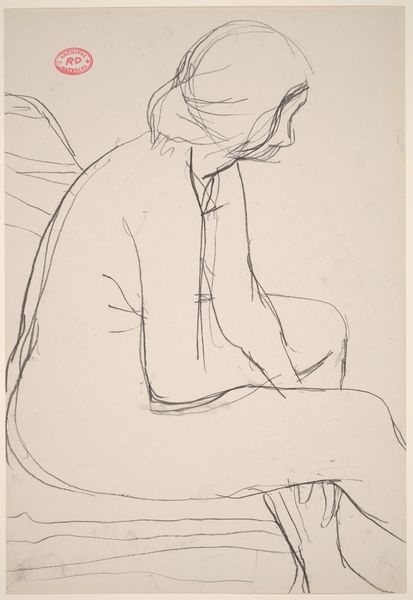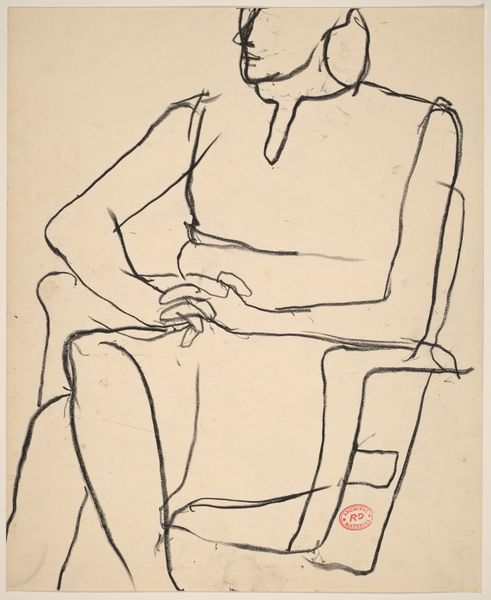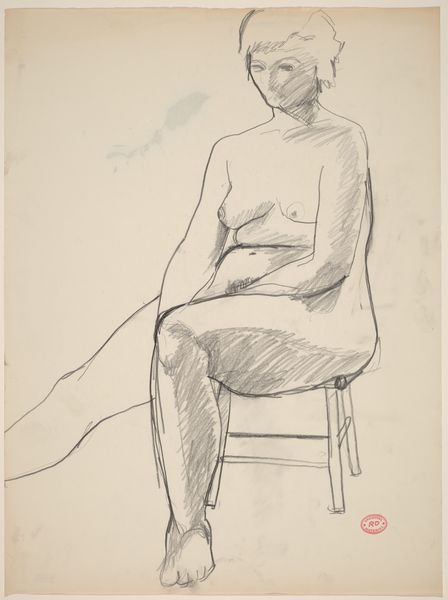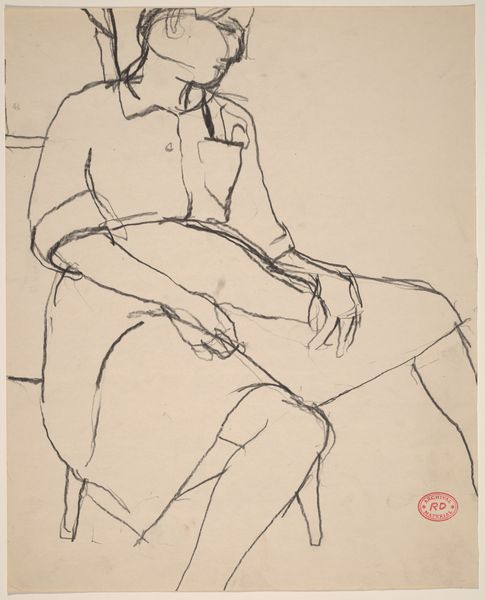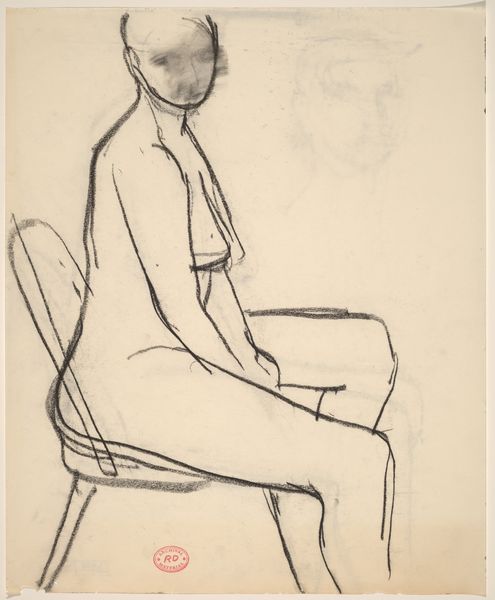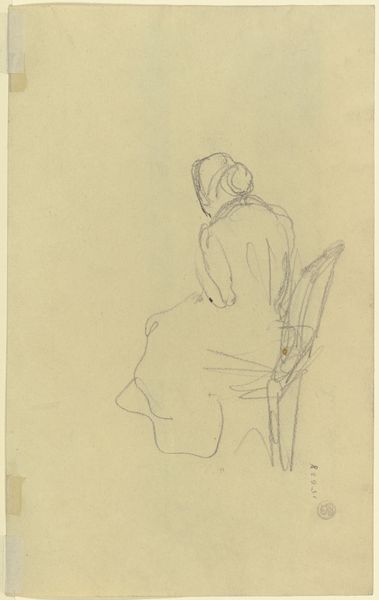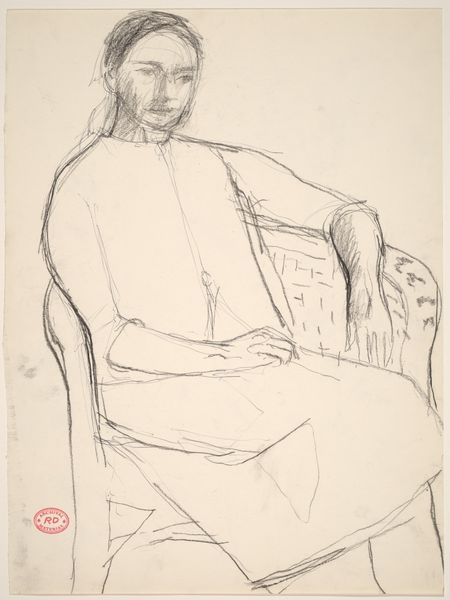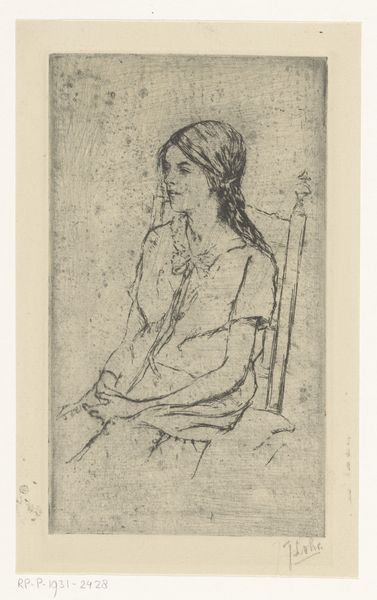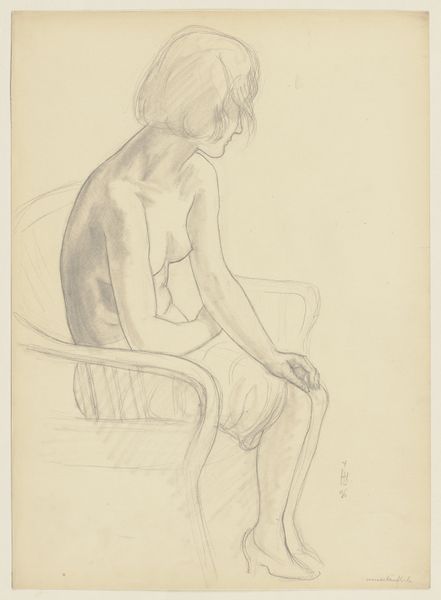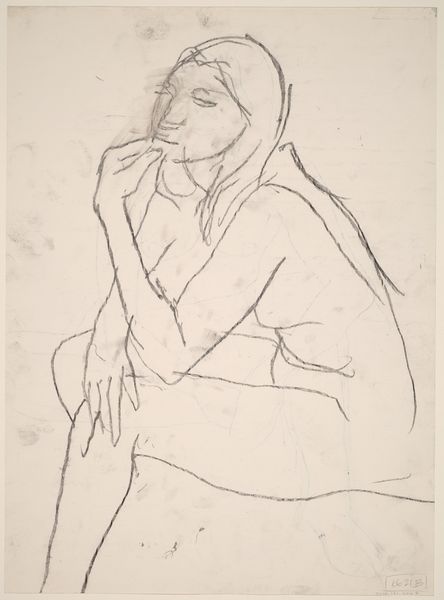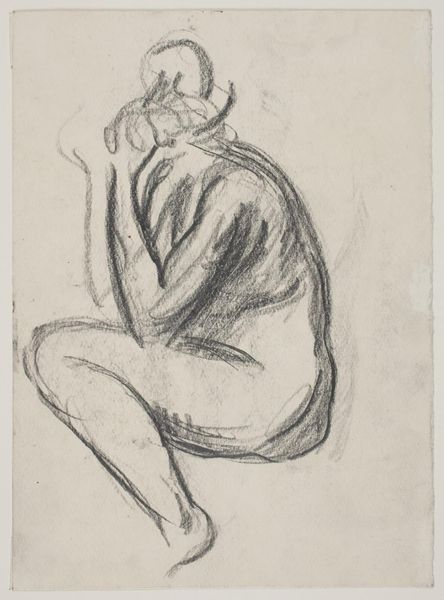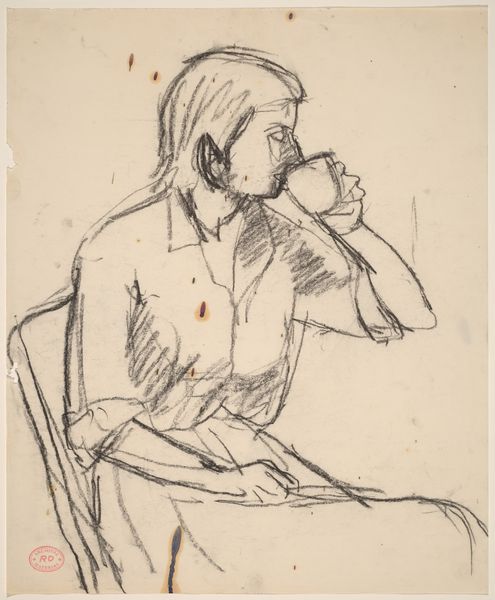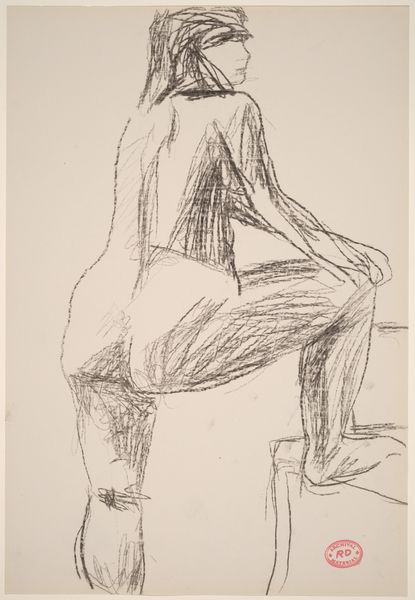![Untitled [woman seated] by Richard Diebenkorn](/_next/image?url=https%3A%2F%2Fd2w8kbdekdi1gv.cloudfront.net%2FeyJidWNrZXQiOiAiYXJ0ZXJhLWltYWdlcy1idWNrZXQiLCAia2V5IjogImFydHdvcmtzLzg3MzViNzcwLWY3ZmUtNDYyYi1hODk5LWZkMzJkOTA3NWIxNS84NzM1Yjc3MC1mN2ZlLTQ2MmItYTg5OS1mZDMyZDkwNzViMTVfZnVsbC5qcGciLCAiZWRpdHMiOiB7InJlc2l6ZSI6IHsid2lkdGgiOiAxOTIwLCAiaGVpZ2h0IjogMTkyMCwgImZpdCI6ICJpbnNpZGUifX19&w=3840&q=75)
drawing, pencil
#
portrait
#
drawing
#
figuration
#
bay-area-figurative-movement
#
pencil
#
modernism
Dimensions: overall: 40.6 x 27.6 cm (16 x 10 7/8 in.)
Copyright: National Gallery of Art: CC0 1.0
Curator: The somber yet simplistic style of Diebenkorn's drawing evokes the art of Matisse. There's an appealing sense of unfinished quality, and you almost get the feeling of glancing into an intimate moment. What is your initial impression? Editor: It definitely feels very intimate, in the sense that this feels like a sketch of a domestic scene, but there's also an almost uncanny detachment, an emotional distance between the artist and subject, and also between the subject and us as viewers. This woman seems lost in her own thoughts. Curator: Exactly! "Untitled [woman seated]" executed between 1955 and 1967 with humble materials like graphite on paper, speaks to Diebenkorn's engagement with both observation and abstraction during this period, revealing a Modernist influence while remaining firmly rooted in figuration. Considering the dates it was created in, it speaks to themes of gender and domesticity post war. The figure is grounded firmly in her chair but remains trapped in the domestic sphere. Editor: It's interesting how the sketchiness almost deconstructs her image. We see a woman defined by the minimalist use of lines which evokes a fleeting impression. In its raw simplicity, the artwork hints at something very fragile, which, thinking about the socio-cultural context, could represent the position of women. Does that strike you as plausible? Curator: Yes! I find myself considering, how might her posture, combined with the ambiguity of her expression, also embody some quiet form of defiance against expected societal norms? This is only amplified by Diebenkorn choosing not to embellish the composition. Editor: Absolutely. I keep coming back to this push and pull between the public role of art and the artist’s most private, lived experience of reality. Thank you for helping me explore those issues. Curator: Of course. Thinking about the complex negotiations of identity, class, and visibility helps me appreciate Diebenkorn’s work on a more profound level.
Comments
No comments
Be the first to comment and join the conversation on the ultimate creative platform.
